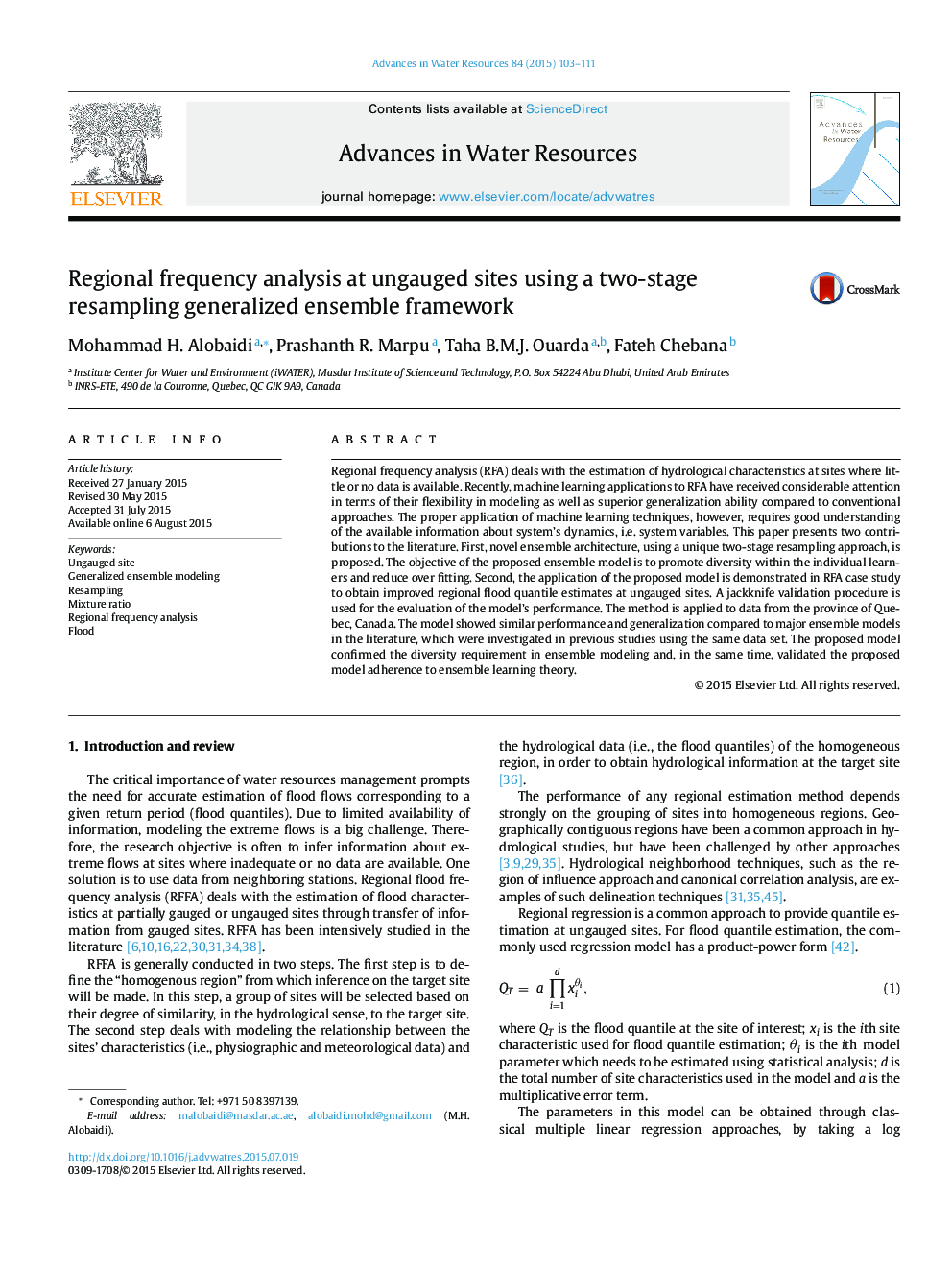| Article ID | Journal | Published Year | Pages | File Type |
|---|---|---|---|---|
| 4525292 | Advances in Water Resources | 2015 | 9 Pages |
•We propose a novel resampling technique and information mixture concept.•We propose a generalized ensemble-based artificial neural network framework.•We apply the proposed framework on a case study in regional frequency analysis.•The proposed resampling technique improved quantile estimates at ungauged sites.
Regional frequency analysis (RFA) deals with the estimation of hydrological characteristics at sites where little or no data is available. Recently, machine learning applications to RFA have received considerable attention in terms of their flexibility in modeling as well as superior generalization ability compared to conventional approaches. The proper application of machine learning techniques, however, requires good understanding of the available information about system's dynamics, i.e. system variables. This paper presents two contributions to the literature. First, novel ensemble architecture, using a unique two-stage resampling approach, is proposed. The objective of the proposed ensemble model is to promote diversity within the individual learners and reduce over fitting. Second, the application of the proposed model is demonstrated in RFA case study to obtain improved regional flood quantile estimates at ungauged sites. A jackknife validation procedure is used for the evaluation of the model's performance. The method is applied to data from the province of Quebec, Canada. The model showed similar performance and generalization compared to major ensemble models in the literature, which were investigated in previous studies using the same data set. The proposed model confirmed the diversity requirement in ensemble modeling and, in the same time, validated the proposed model adherence to ensemble learning theory.
